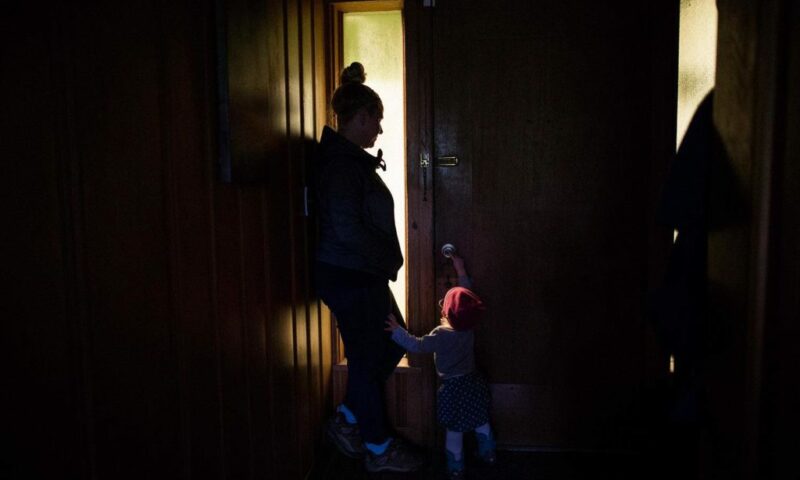

Rural Trinity County is home to 13,500 people in Northern California and marijuana production is rampant there. Along with Humboldt and Mendocino counties, Trinity comprises California’s “Emerald Triangle,” a region known for its prolific marijuana farming. Hayfork is Trinity County’s second largest town, and an area of concentrated production.


As California voters prepare to make a historic decision about legalizing the recreational use of marijuana, promises and omens have become part of the debate.


As Assembly Bill 1066, which would grant overtime pay to California farm workers, heads for a vote in the Assembly, farm workers and faith and civil rights groups are fighting for the votes needed to pass it.


Last week was a turning point. The U.S. Department of Justice’s (DOJ) announcement that it will wind down its use of private prisons is a major step in the struggle to end for-profit incarceration in America.


Tony Sheldon, an internationally known trade unionist and the national secretary of Australia’s Transport Workers Union, recently attended a Las Vegas convention of world labor representatives, hosted by the Teamsters. Capital & Main caught up with him later in Los Angeles.


The U.S. Department of Justice (DOJ) just announced its plans to end its use of privately operated, for-profit prisons to incarcerate federal prisoners.


Several years ago when my wife Susan and I traveled across Ireland by local bus, we headed toward a national cultural site a few miles beyond the nearest town. The route the bus took crossed a rural peninsula, and finally to the little community.


Seth Sandronsky reports that California rates No. 1 for family-friendly laws — even as new legislation is blocked in Sacramento.


Co-published by TIME.
Alissa Quart reports on how parents are navigating the increasingly expensive and unequal world of daycare.
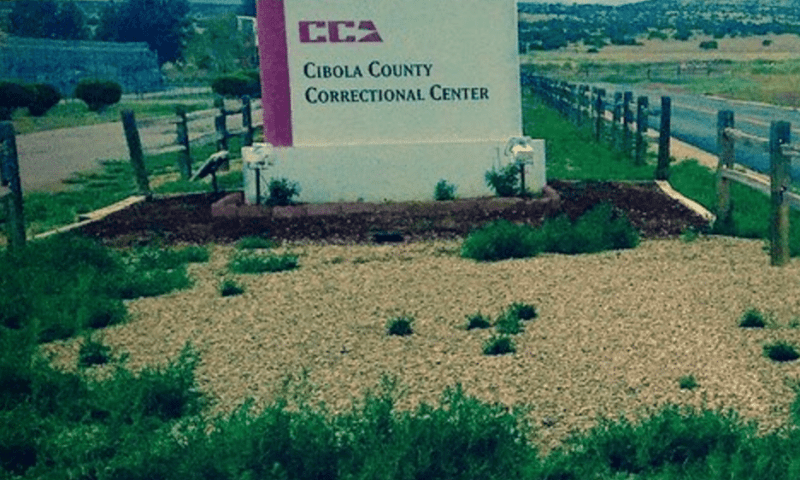

Two weeks ago, the country’s second largest private prison company told its investors it had some bad news…


Paulina Gonzalez and Lori Gay on how a powerful lobby is blocking the extension of California’s community investment program.


The fight for farm worker overtime is going down to the wire in the current legislative session, which will adjourn at the end of August. And as Assembly Bill 1066, which would require it, moves through the legislature, Jewish and African-American organizations have made a commitment to win the votes it needs for passage.


Over 300,000 California housekeepers, nannies and personal attendants provide support and care to seniors and people with disabilities, putting in long hours caring for an estimated two million households.


In April, when Iowa governor Terry Branstad handed over the state’s Medicaid program to private insurance companies, many questioned his motives. Recent large-scale transitions to privatized Medicaid in states like Florida and Kansas haven’t fared well.
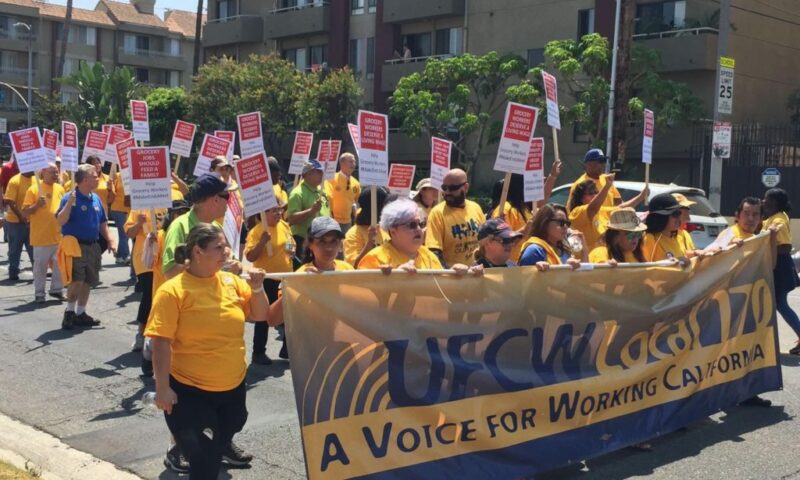
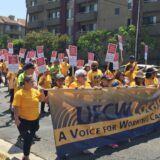
Southern California grocery union officials delivered good news for the 47,000 rank-and-file members who as recently as Tuesday had been bracing for a strike over stalled contract talks.
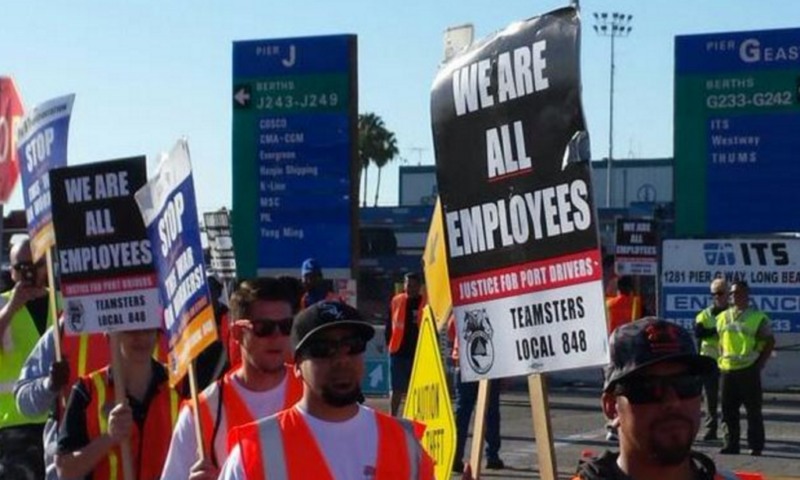
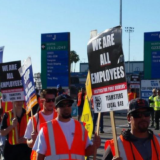
What if millions of American workers were being denied health insurance, job security and the most basic legal protections, from overtime pay to workers compensation to the right to join a union?
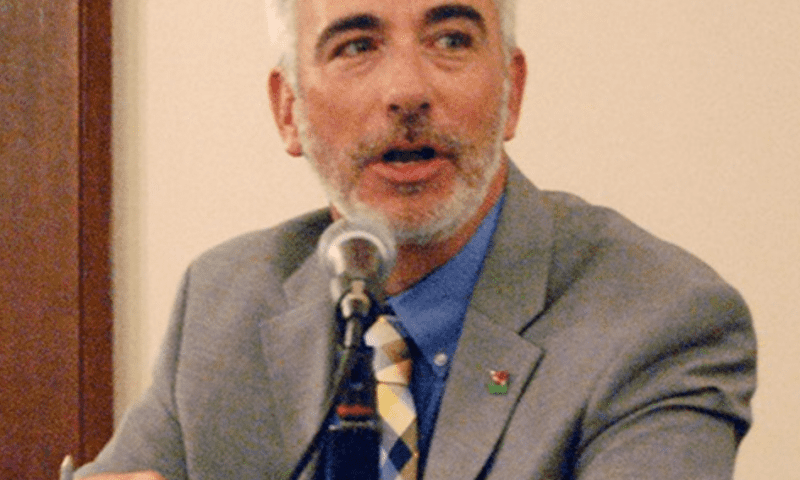
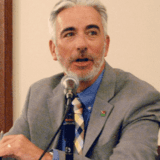
“What’s Next After $15?” a forum recently held by the American Civil Liberties Union’s Pasadena chapter, brought together community organizers and antipoverty activists to discuss the challenges now faced by the City of Roses to implement its new living wage law.


Sometimes knowing where someone stands on an issue is pretty straightforward. We can be sure about this: the private prison industry doesn’t share our goal of ending mass incarceration.


Paul Tullis on the Trump Organization’s latest battle with employees at its Las Vegas resort hotel.
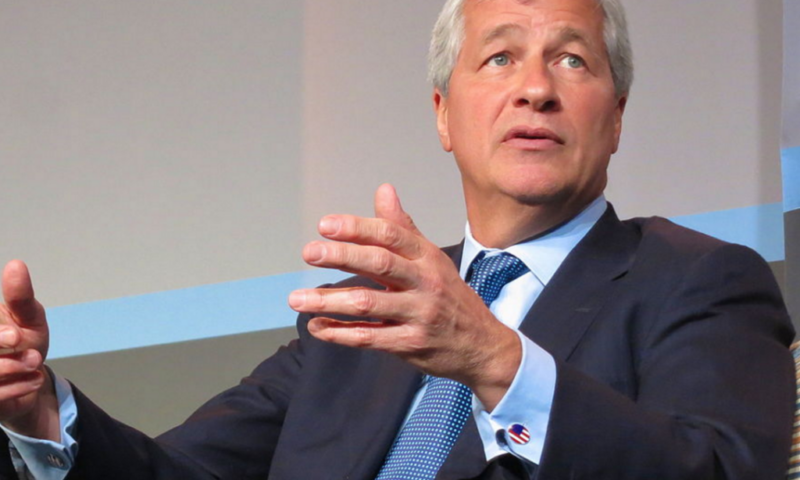

Jamie Dimon, CEO of JPMorgan Chase, knows something about pay increases. Last year, JPMorgan Chase’s board gave Dimon a 35 percent pay increase, from $20 million to $27 million, even though the bank’s profits fell two percent and it laid off 6,671 employees.